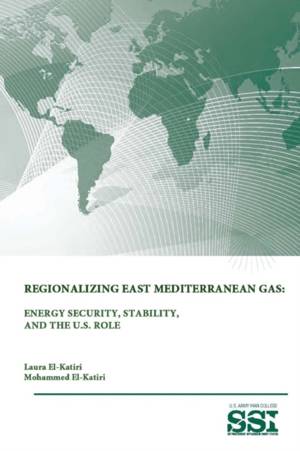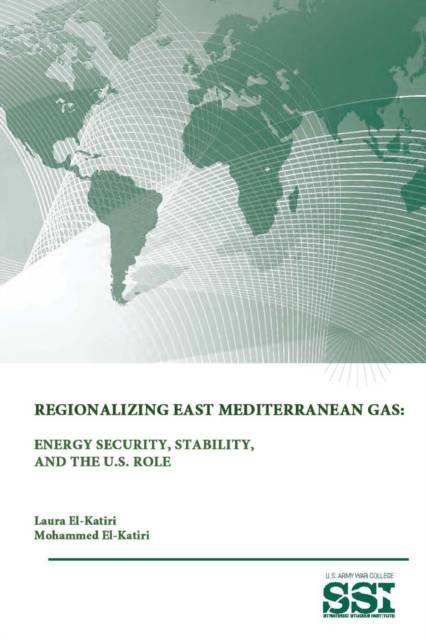
- Afhalen na 1 uur in een winkel met voorraad
- Gratis thuislevering in België vanaf € 30
- Ruim aanbod met 7 miljoen producten
- Afhalen na 1 uur in een winkel met voorraad
- Gratis thuislevering in België vanaf € 30
- Ruim aanbod met 7 miljoen producten
Zoeken
Regionalizing East Mediterranean Gas
Energy Security, Stability, and The U.S. Role
Mohammed El-Katiri, Strategic Studies Institute, U S Army War College
Paperback | Engels
€ 21,95
+ 43 punten
Omschrijving
In recent years the distribution of the world's exploitable energy reserves has shifted markedly. One major change is the discovery of substantial gas deposits offshore the Levant. But while these deposits have the potential to revolutionize the economies of the net energy importers, Cyprus, Lebanon, and Israel, they also bring into sharp focus long-running disputes over maritime boundaries and sovereignty. In short, these deposits provide yet another cause for conflict in an already deeply troubled region. This monograph explores both the positive and negative implications of the Eastern Mediterranean's new gas reserves for the region, and the implications of both for U.S. interests. It combines the recognized expertise of two researchers with long experience in regional and energy studies, respectively.
Specificaties
Betrokkenen
- Auteur(s):
- Uitgeverij:
Inhoud
- Aantal bladzijden:
- 72
- Taal:
- Engels
Eigenschappen
- Productcode (EAN):
- 9781312846852
- Verschijningsdatum:
- 18/01/2015
- Uitvoering:
- Paperback
- Formaat:
- Trade paperback (VS)
- Afmetingen:
- 152 mm x 229 mm
- Gewicht:
- 117 g

Alleen bij Standaard Boekhandel
+ 43 punten op je klantenkaart van Standaard Boekhandel
Beoordelingen
We publiceren alleen reviews die voldoen aan de voorwaarden voor reviews. Bekijk onze voorwaarden voor reviews.











